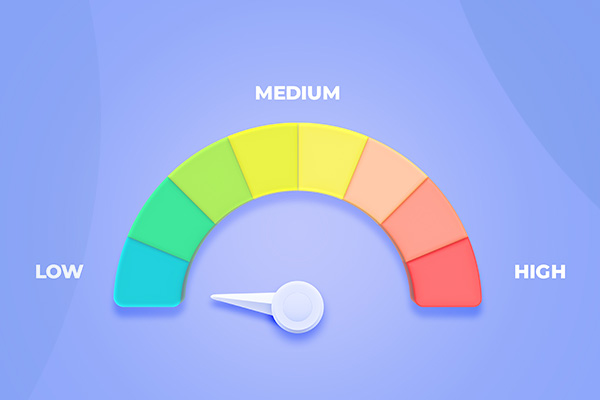10 Common Credit Score Myths You Should Know

Credit scores have a huge impact on our financial lives, affecting everything from loan approval to interest rates. But, amid all this, there are a lot of misconceptions floating around that make it difficult to understand how credit scores work. In this blog, we’re going to break down some of the most common misconceptions about credit scores so you can feel more comfortable using them.
Before we get into the nitty-gritty of why credit scores matter, let’s take a step back and understand why your credit score matters.
Your credit score serves as your financial report card. A higher score shows lenders that you are a creditworthy borrower and better loan terms. A lower score means higher interest rates or loan rejections. By understanding and managing your credit score, you will be in a better position to efficiently access financial opportunities and plan your financial future.
Also read: What is a Credit Score & why is it important?
Debunking Common Credit Score Myths
Here are some common myths about credit scores debunked:
Myth 1: Checking Your Credit Score Lowers It
A common misconception is that checking your credit score can damage it. However, checking credit score on your own is known as a “soft inquiry”, which has no effect on the score. Lenders’ credit checks are called “hard inquires” and you will see a slight decrease in your score during these checks. . So, do not be afraid to check your credit score on a regular basis.
Myth 2: Closing Old Accounts Improves Your Credit Score
Closing old accounts may seem like a good way to improve your credit score, but it is important to remember that old accounts can have a negative impact on your credit score. For example, your credit utilization ratio, which measures your debt relative to your available credit, may increase if you close your old accounts, potentially lowering your score. Additionally, closing old accounts shortens your credit history, which is another factor lenders consider. Instead, it is recommended to keep these accounts active to maintain a diverse credit mix and which may improve your credit score.
Myth 3: Having More Credit Cards Decreases Your Score
Contrary to popular belief, having multiple credit cards doesn’t affect your credit rating. By managing your credit responsibly, you have the opportunity to showcase your financial prowess through the prudent utilization of multiple credit cards. However, it is important to maintain low credit utilization and make payments on all your cards on time.
Myth 4: Paying Off Debts Immediately Boosts Your Score
Credit scoring models consider a variety of factors, such as your credit utilization and payment history. So, paying off your debts doesn’t immediately increase your credit score, but over time it does. The real key to boosting your credit score is consistent, timely payments and good credit management.
Myth 5: Co-signing Has No Effect on Your Credit
Co-signing a loan with your primary borrower can have an impact on your credit score. If your primary borrower misses payments or defaults on the loan, it can affect your credit score. Before co-signing any loan, it is important to understand the risks associated with it.
Myth 6: Bankruptcy Ruins Your Credit Forever
Bankruptcy does have an impact on your credit score, but it’s not permanent.. While it is likely to appear on your credit report for several years, its effect diminishes over time, particularly as you show signs of financial responsibility. You can rebuild your credit limit after bankruptcy by making payments on time, maintaining low credit card balances, and avoiding new debt.
Myth 7: Paying Off Debt Removes It from Your Credit Report
Paying off debt is an important step in improving your financial health, but it does not automatically remove it from your credit report. Paid-off debts typically remain on your credit report for a specified time period, depending on the type of debt. It is essential to monitor your credit report regularly and dispute any inaccuracies to ensure your credit information is up-to-date.
Myth 8: Closing Credit Cards with Zero Balances Helps Your Score
Closing a credit card, particularly a zero balance card, not only lowers your credit score, it also reduces your available credit balance and can potentially increase your utilization ratio.
Also read: How to build your credit score while swiping your Credit Card
Myth 9: Only Carrying Small Balances on Credit Cards Helps Your Score
Contrary to what many people think, a low credit card balance will not boost your credit score. In fact, it is best to pay off your credit card balance in full and on time to avoid interest charges. Maintaining a low credit utilization ratio and making payments on time are much more beneficial to your credit score than keeping balances.
Myth 10: You Can’t Check Your Credit Score Easily
There are a few ways to check your credit score. One of the most common is through a credit bureau. These credit agencies provide credit reports that contain your credit score along with details of your credit history such as your loan account, credit card account, payment history, etc.
You can get your credit report as a free service once a year or choose a paid subscription service for more regular access. Many banks and other financial institutions now provide credit score checking service via their online banking platform or mobile app. If you have a GO Savings Account with RBL Bank, you get access to free CIBIL Report and check your CIBIL Score once a year.
Also read: All about CIBIL Score and how is it calculated
In conclusion, understanding the truth behind credit score myths are essential for managing your financial health effectively. By debunking these misconceptions and embracing responsible credit management practices, you can take control of your credit score and pave the way toward a brighter financial future!

 Blog
Blog Blog
Blog



Comments
No comments yet.